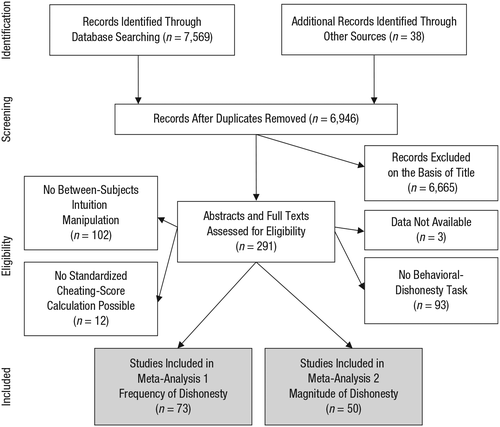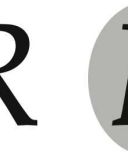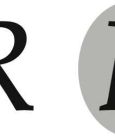Deception
Are We Intuitively Honest or Dishonest?
People may be intuitively dishonest, but only if it does not harm others.
Posted July 18, 2019

By Nils Köbis
Imagine that you are on your way to work and make a stop at a large coffee chain to grab a coffee to go. You are somewhat in a rush, and as you just shut the door behind you, you realize that you received too much change. What do you do? Do you keep the money? Or do you return the undue amount?
Similar temptations occur almost daily, giving people the chance to serve their self-interest by bending ethical rules. In such situations, people are often distracted, stressed, or under pressure and thus take little or no time to deliberate. What is people’s basic inclination in such situations: to be honest or dishonest? More than 70 experiments have tested this question empirically – with mixed results. A paper that I co-authored, which will appear in the July issue of Perspectives on Psychological Science (the online first version is openly available here), presents first meta-analytical evidence based on this large collection of studies.
Is Sin Original?
Back in May 2016, the University of Amsterdam organized a one-day workshop on the question: “Is sin original?” It brought together leading researchers who work on the question of whether self-serving lying is intuitive or whether honesty comes naturally. The most surprising outcome of the workshop was that the research findings disagreed quite starkly: While some of the work presented supported the view that people are intuitively honest, a second stream of empirical evidence indicated the opposite: intuitive dishonesty.
For example, during the workshop, Bruno Verschuere (University of Amsterdam) presented research that suggested that honesty is intuitive. Namely, when people are instructed to tell lies, they have the truth in mind and crafting a lie requires cognitive effort (e.g. Suchotzki et al., 2017).
However, research by Yoella Bereby-Meyer (Ben-Gurion University of the Negev) and Shaul Shalvi (University of Amsterdam) found the opposite. When people are tired, under time pressure, or distracted they more easily cave in to various temptations, even if those require lying (Bereby-Meyer & Shalvi, 2015). This view posits that dishonesty is intuitive.
Further, David Rand (MIT) presented research on the social heuristics hypothesis which suggests that intuition favors cooperation over interpersonal selfishness in economic games (e.g. Rand, 2016). When applied to dishonesty this work suggested that the question of whether honesty or dishonesty is intuitive depends on the social context, i.e. whether it harms an abstract or a concrete victim.
Adversarial Collaboration
After the workshop, the authors decided to team up and start an adversarial collaboration. In this method, championed by Nobel prize laureate Daniel Kahneman, researchers who hold competing hypotheses team up to gain new answers.
Our team conducted a meta-analysis, instead of a single experiment. Extensive online searches and repeated calls for unpublished data resulted in a collection of more than 70 studies that had experimentally manipulated reliance on intuition and used a behavioral cheating task (see Fig. 1). It allowed us to run two meta-analytical tests, one on the proportion of liars (73 studies with a total of 12,711 participants) and another one on the magnitude of lying (50 studies with a total of 6,473 participants).

What the Evidence Showed
The results support an intuitive-dishonesty effect – but only when dishonesty does not harm concrete victims.
That is, in anonymous settings in which dishonesty does not have an obvious victim – for example, where lying earns the subject more money without causing another subject to lose anything – inducing people to rely on their intuition leads to more people lying (Meta-Analysis 1) and people lying more (Meta-Analysis 2). However, when dishonesty harms concrete others – for example, earning the subject more money at the expense of another subject earning less – no intuitive-dishonesty effect appears. This suggests that the social heuristic to “do no harm” to the victim might have canceled out the intuitive selfish appeal of dishonesty.
As very few studies have experimentally tested the influence of social harm directly, hopefully, future research using well-powered pre-registered designs will provide deeper insights into how the social consequences of lying relate to the role of intuition.
Coming back to the initial example, it looks like when they go with their gut, people are more likely to pocket the change, but only if they were buying the coffee at a large chain, in which the person suffering from the act is rather ambiguous. When buying the coffee from a street vendor, such temptation would be reduced.
The good news about these findings: People intuitively care about others they can clearly identify. Honesty could thus be promoted by making the negative consequences of dishonesty more salient.
References
Bereby-Meyer, Y., & Shalvi, S. (2015). Deliberate honesty. Current Opinion in Psychology, 6, 195–198. http://doi.org/10.1016/j.copsyc.2015.09.004
Köbis, N. C., Verschuere, B., Bereby-Meyer, Y., Rand, D., & Shalvi, S. (2019). Intuitive Honesty Versus Dishonesty: Meta-Analytic Evidence. Perspectives on Psychological Science, online fir. http://doi.org/10.1177/1745691619851778
Rand, D. G. (2016). Cooperation, Fast and Slow. Psychological Science, 27(9), 1192–1206. http://doi.org/10.1177/0956797616654455
Suchotzki, K., Verschuere, B., Van Bockstaele, B., Ben-Shakhar, G., & Crombez, G. (2017). Lying takes time: A meta-analysis on reaction time measures of deception. Psychological Bulletin, 143(4), 428–453. http://doi.org/10.1037/bul0000087


